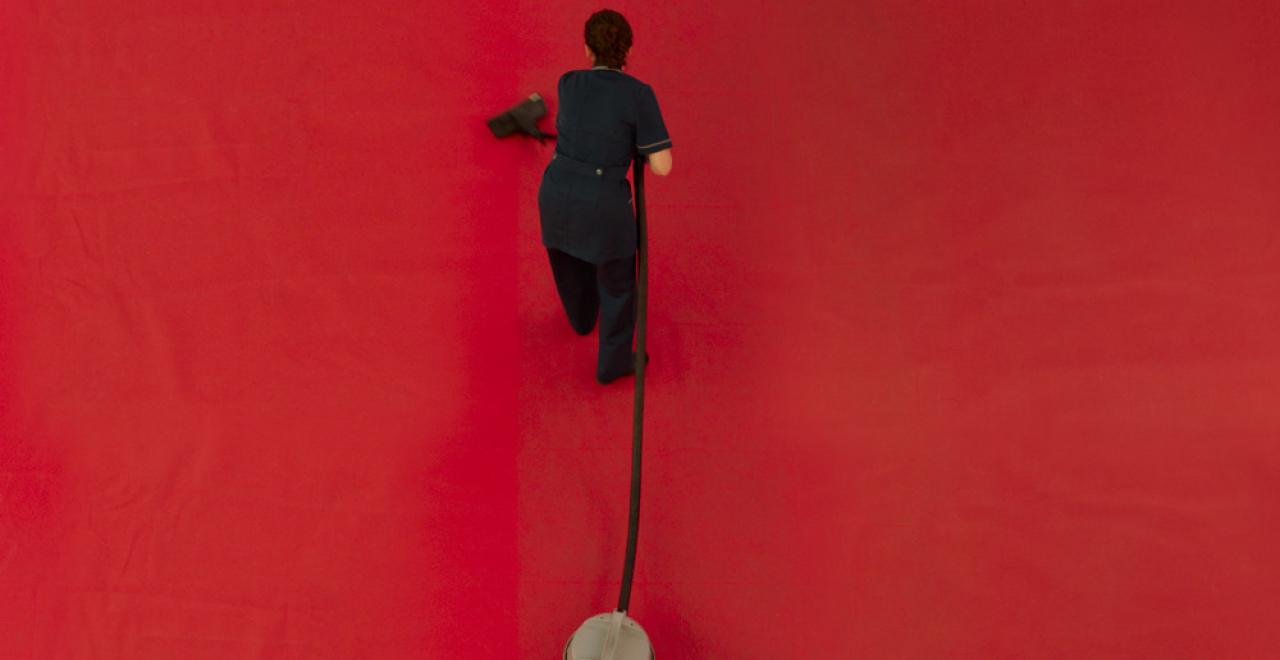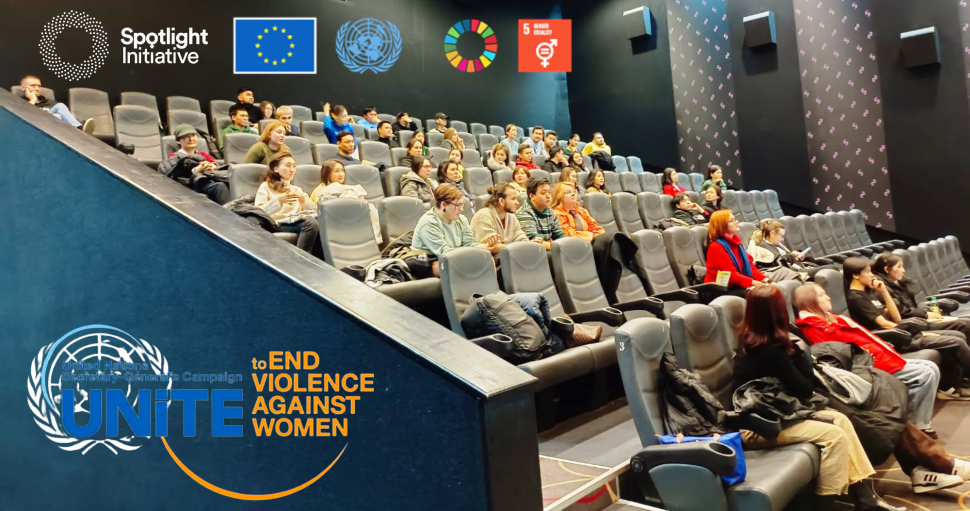THE SPOTLIGHT REGIONAL PROGRAMME FOR CENTRAL ASIA AND AFGHANISTAN JOINED THE SCREENING OF "HER JOB" FILM WITHIN THE EU FILM FESTIVAL IN KAZAKHSTAN

Within the upcoming 16 Days of Activism against Gender-based Violence (GBV) campaign, the Spotlight Regional Programme joined screening of "Her Job" film, as part of the European Film Festival (learn more), on 7 November, in Astana, Kazakhstan. The Spotlight Regional Programme, in partnership with Anna Ryl, Director of the Private Foundation "Korgau-Astana" which provides services for survivors of violence in 7 cities in Kazakhstan, facilitated a discussion with the audience about preventing and responding to GBV, based on the story of the protagonist, 37-year-old Panayiota, who transforms in the film from an illiterate housewife to a woman with a clearly defined identity, gradually gaining the respect she never had from her family. The screening followed by an interactive and thought-provoking discussion with the film director Nikos Labôt.
The Spotlight Regional Programme will similarly support screening and post-screening discussion of the film on Monday, 28 November, with students from various universities in Almaty, Kazakstan, and in early December in Bishkek, Kyrgyzstan.
Special thanks to the European Union Delegation in Kazakhstan who have made this festival possible!
It is our great pleasure to share with you a brief interview with the film director Mr Nikos Labôt, which he has graciously granted at the initiative of the Spotlight Regional Programme in Central Asia and Afghanistan.
INTERVIEW WITH THE FILM DIRECTOR NIKOS LABÔT
Q.1 The protagonist of your film 'Her Job' is struggling as a mother, a wife, and an employee, attempting to prove that she deserves to be treated with the respect. She is evolving under the circumstances. Who, in your view, should help a woman to improve her self-esteem and to create her new identity?
Answer: At first, I think that a woman in such need has to listen to her own desires (and confront with her fears) no matter how difficult this can be when she is treated without respect and she feels underestimated. The first step is the most important. She has to question herself: “Do I deserve to live like that? What life worth if I go on living like this?” By improving her self-esteem, step by step, she can find a new identity and gain back her dignity. But sometimes things can be more perplex. Often a woman does not know how to seek help if needed. There are out there many organisations (state services as well) and specialists (psychological support) which are willing to help. She just has to find the courage to take her life in her hands.
Q.2 What, in your view, could be the protagonist's ideal next job to follow her dream and what is required for this transformative change to happen in the society?
Answer: At the end of the film the heroine has found her true identity. Despite the fact that she has lost her job, she feels that now she knows how she wants to keep up with her life. No matter what kind of job she will find she has found her voice, she has been respected for the first time in her life. What is required for this transformative change to happen in the society? I believe that a lot must happen, but first we have to improve our education systems inside schools and smash social stereotypes inside houses. All these stereotypes about how a girl or a boy should be, should act or dress, get to limit our lives and determine our behaviour unconsciously. Patriarchy is very deep established and rooted in our life, in our DNA I would say, and this fact is responsible for many pathologies in society. It will be a long and painful process to abort these stereotypes that have influenced all kind of societies for so long. On the other hand, the idea of some old feminist schemes that women now should take revenge over men will not help to improve things. I think we must be open-minded, women should act along with men, they should meet, co-operate and build together the path towards a more equal society. Last but not least, I think it's time, for certain countries, at least, to try the separate the Church from the State, in order to go to a more democratic and equal society. For example, in Greece (a westernized - so called progressive - society) there is not a separation of Church and State, so Greece is characterized by the strong influence of religion on society. It turns out that religion plays a dominant role in the reproduction of these conservative social stereotypes that prevent women from climbing the hierarchical ladder.
Q.3 Gender-based violence is a deeply rooted pandemic in a patriarchal society where female abuse and domestic violence is commonplace. Are you interested in making another film about gender-based violence and which 'key messages' would you like to raise to stir up large-scale public debates on discriminatory gender norms?
Answer: The script that I currently develop has to do with the discrimination of gender identity and sexual orientation. I am not focusing on the physical violence though. I see my characters as equal to everyone else but still they have to face psychological or verbal violence. But once again my characters have to find the courage and the strength to confront themselves (and their surrounding of course) in order to find their path.

